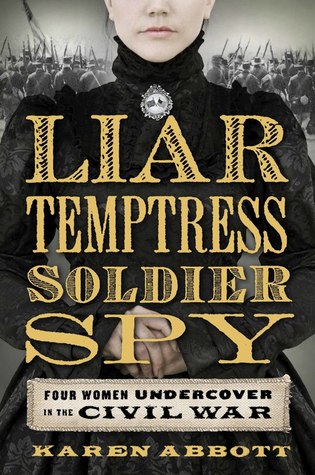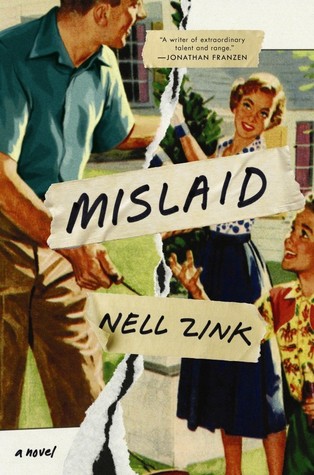Publisher: Harper. July 2014.
Genre: Nonfiction
Source: Library Audiobook
Pages: 513
ADD TO GOODREADS
BUY FROM INDIEBOUND
BUY FROM BOOK DEPOSITORY
War, like politics, was men’s work, and women were supposed to be among its victims, not its perpetrators. Women’s loyalty was assumed, regarded as a prime attribute of femininity itself.
As someone who's super scared of nonfiction and who hates reading about wars, I was nervous about this book. But when I heard that Karen Abbott was coming to town, I decided it was time to give this book a chance. Everybody who has read it loved it and the subject matter certainly sounded interesting. Badass women undercover?? Sign me up. I've just always had trouble with history, for whatever reason. Abbott makes Civil War history so interesting and accessible, without dumbing it down. All of the women included were incredible in what they were willing to do either for their sides of the war.
Something I really liked was how Abbott doesn't present those who fought on the Confederate side of things like villains. She just presented the facts and the personalities; what the women did without judgement. No side was glorified, every woman flawed and incredible in their own way. Also, when I saw Abbott speak she described one of the women, Belle Boyd, as a mixture of Sarah Palin and Miley Cyrus, which is SO ACCURATE. If that doesn't make you want to know more about these women, I don't know what will.
Publisher: Hogarth. February 2016.
Genre: Literary Fiction
Source: Bought new
Pages: 192
ADD TO GOODREADS
BUY FROM INDIEBOUND
BUY FROM BOOK DEPOSITORY
Everything starts to feel unfamiliar. As if I've come up to the back of something. Shut up behind a door without a handle. Perhaps I'm only now coming face-to-face with the thing that has always been here. It's dark. Everything is being snuffed out in the pitch-black darkness.
It's so hard for me not to give this four stars, because eeeeeverybody else loved it. But I don't at all feel comfortable giving it a solid four. I think I got caught in a hype trap a little bit. Everybody who read this heralded it as super disturbing and weird. So I was expecting the most disturbing book ever. Much to my dismay, it was only sort of disturbing. This story about a South Korean woman who gives up eating meat due to a violent dream she had is definitely interesting.
As she herself becomes more and more like a plant, and the book jumps to new narrators across relatively big spans of time separating the book into three parts, it definitely gets progressively stranger. I really appreciate what Kang has to say about conformity, women, and mental illness in South Korea. At the same time, though, I wasn't blown away by how the story was told. It felt like it lost steam a little bit when it had some excellent opportunities to get really unsettling and pack a punch. That being said, I did like a quieter ending -- but the second part of the novel was slow and the weird sex stuff was not nearly weird enough. That might be a personal problem, though.
Publisher: Ecco. May 2015.
Genre: Literary Fiction
Source: Library Audiobook
Pages: 242
ADD TO GOODREADS
BUY FROM INDIEBOUND
BUY FROM BOOK DEPOSITORY
Besides, adulthood is never something girls grow into. It is something they have thrust upon them, menstruation being only the first of many two-edged swords subsumed under the rubric “becoming a woman,” all of them occasions to stay home from school and weep.
Mislaid is a complicated novel, but I was so delighted to see that it had more of a structured narrative than The Wallcreeper did. I don't even know how to describe it. A gay professor and a lesbian student bone a lot, get married, have two kids, then the wife runs away, taking her little girl with her. To hide from her husband, Peggy/Meg and her daughter take up the identities of two deceased African Americans and live in poverty passing as black despite being very white. Shenanigans ensue, but like in the most intellectual sense.
The characters are all ridiculous, the plot is ridiculous, but it is soooo smart and funny. Zink does not hold back in her social commentary, and I'm glad she goes so boldly into the absurd while looking at identity. Having read The Wallcreeper, which was a bit of a narrative clusterfuck, I was pretty satisfied with the ending of her second novel. Granted, when you look back at it once you're done, you'll wonder why certain events and characters were included at all. Overall, though, it was pretty entertaining and it definitely makes you think.



